A hollow conducting sphere is placed in an electric field produced by a point charge placed at as shown in figure.
Let be the potentials at points respectively. Then
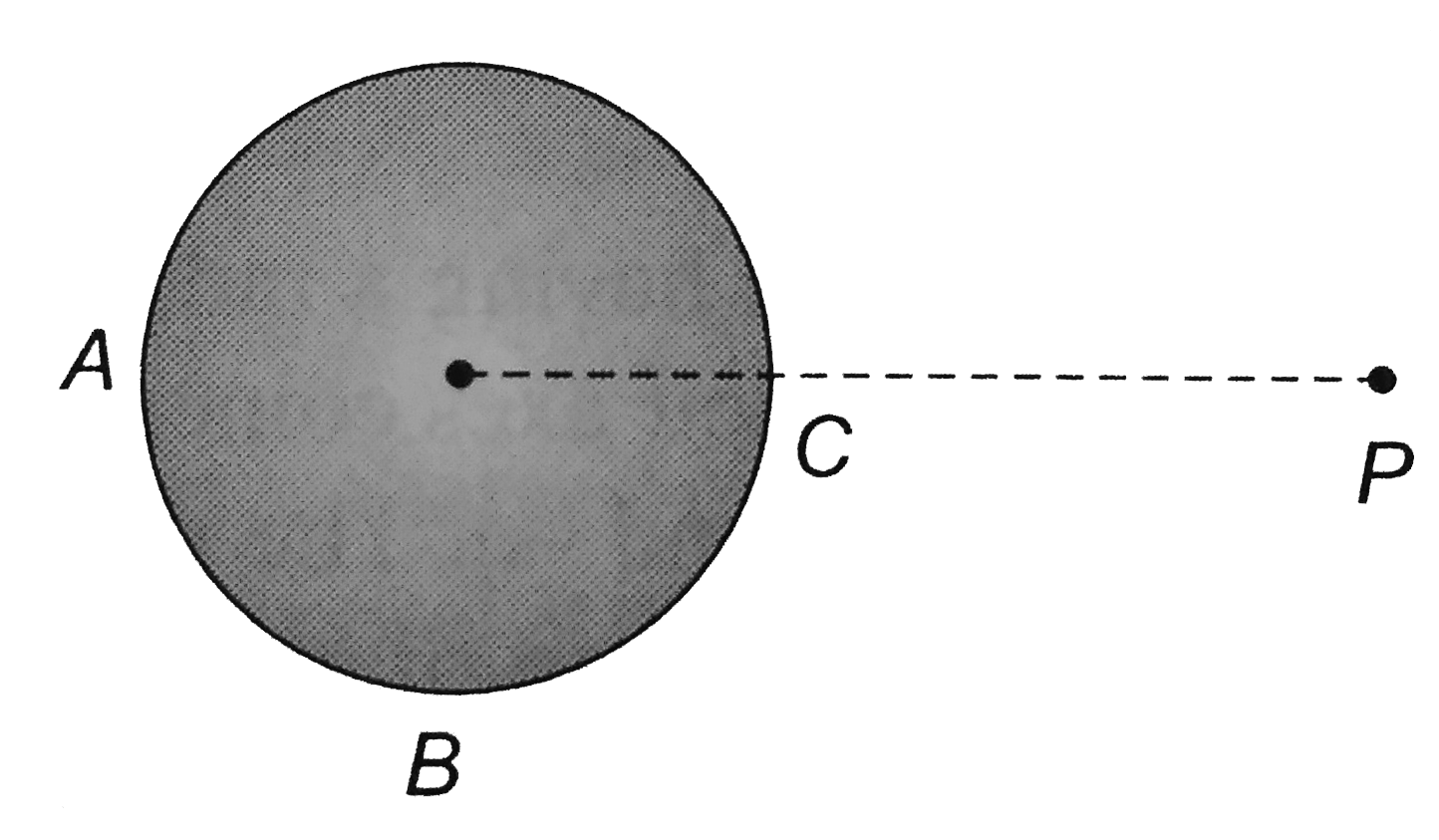
The correct Answer is:D
In the figure given , the hollow conducting sphere becomes an equipotential surface. Therefore
Topper's Solved these Questions
- ELECTROSTATIC POTENTIAL AND CAPACITANCE BOOK - NCERT FINGERTIPSCHAPTER - ELECTROSTATIC POTENTIAL AND CAPACITANCE EXERCISE - Potential Energy As A System Of Charges
4 Videos
- ELECTROSTATIC POTENTIAL AND CAPACITANCE BOOK - NCERT FINGERTIPSCHAPTER - ELECTROSTATIC POTENTIAL AND CAPACITANCE EXERCISE - Potential Energy In An External Field
4 Videos
- ELECTROSTATIC POTENTIAL AND CAPACITANCE BOOK - NCERT FINGERTIPSCHAPTER - ELECTROSTATIC POTENTIAL AND CAPACITANCE EXERCISE - Potential Due To A System Of Charges
7 Videos
- ELECTROMAGNETIC WAVESBOOK - NCERT FINGERTIPSCHAPTER - ELECTROMAGNETIC WAVESEXERCISE - Assertion And Reason
15 Videos
- MAGNETISM AND MATTER BOOK - NCERT FINGERTIPSCHAPTER - MAGNETISM AND MATTER EXERCISE - Assertion And Reason
15 Videos
Similar Questions
The electric field and the electric potential at a point are E and V respectively.
View SolutionGiven figure is the part of some circuit. Charge on the capacitor in the circuit is given by q=3(3−e−1), (coulomb) where t is time in seconds.
Let VA, VB and VC be the potentials of points A, B and C, respectively. At t=0 if VA=5V and a constant current i0=1Amp flows through R=1Ω, then find the VP (in volt)
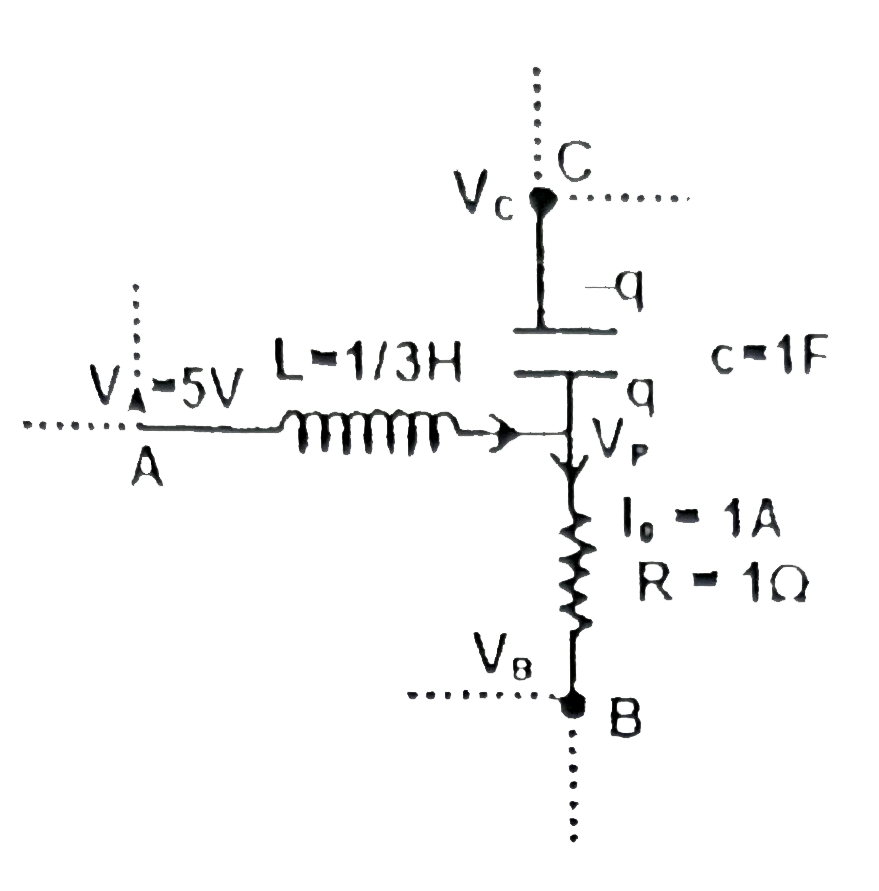
View Solution
Knowledge Check
In the network shown in fig. , points A, B, and C are at potentials of 70 V, 0, and 10V, respectively.
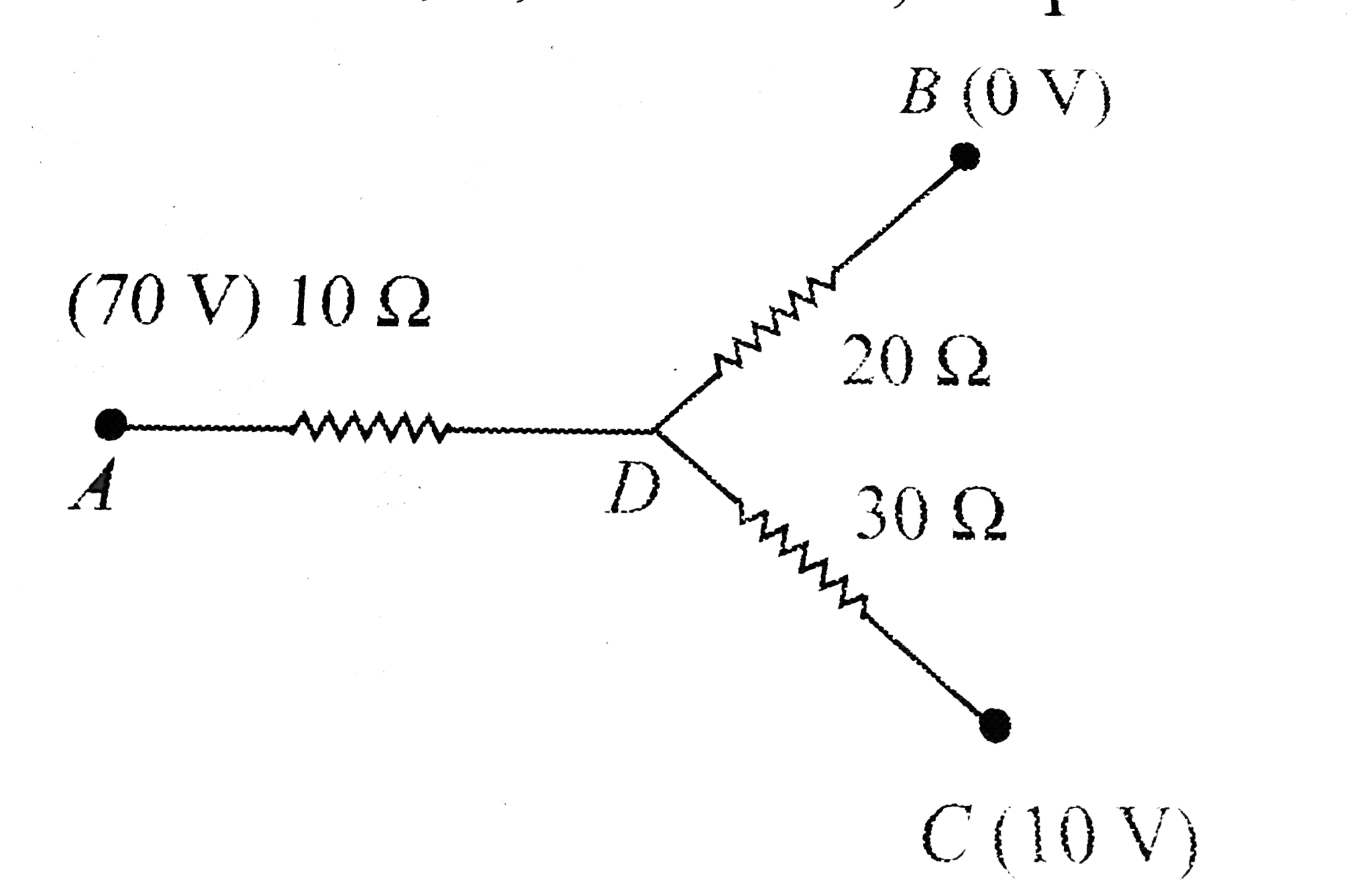 APoint D is at a potential of 40 V.BThe currents in the sections AD, DB, DC are in the ratio 3 : 2 : 1CThe currents in the section AD, DB, DC are in the ratio 1 : 2 : 3.DThe network draws a total power of 200 W.
APoint D is at a potential of 40 V.BThe currents in the sections AD, DB, DC are in the ratio 3 : 2 : 1CThe currents in the section AD, DB, DC are in the ratio 1 : 2 : 3.DThe network draws a total power of 200 W.For the network shown in figure, points A, B and C are at potentials of 70 V, zero and 10 V respectively
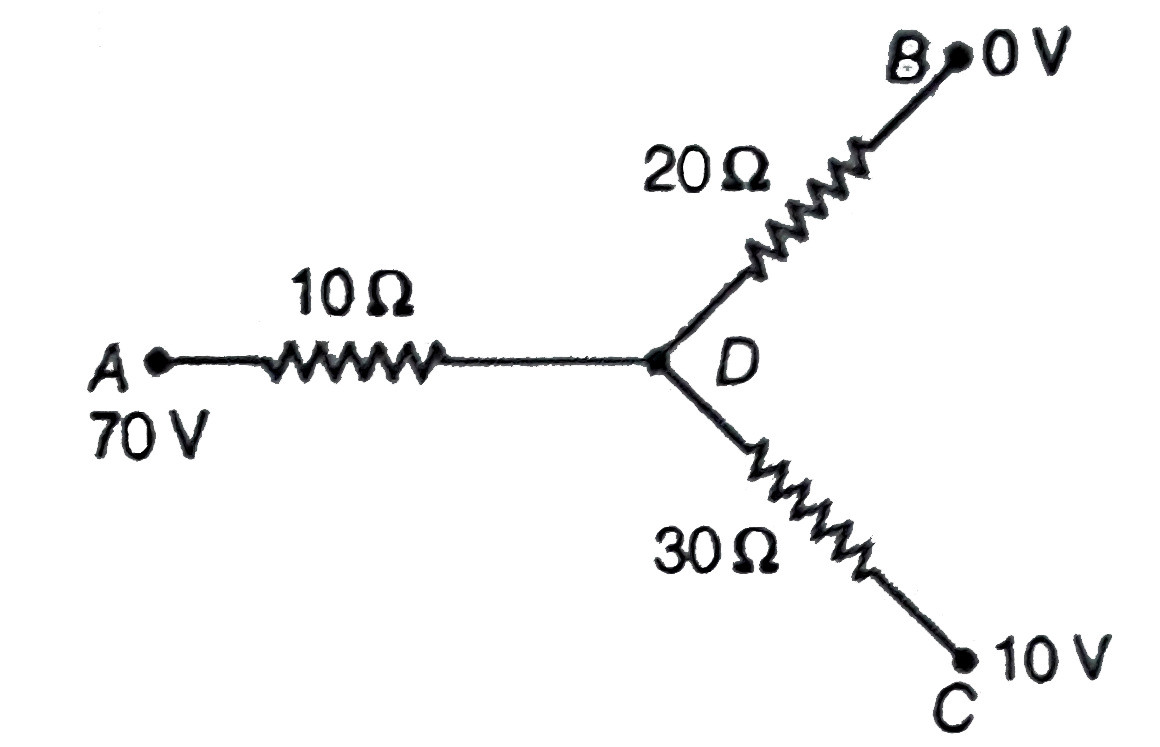 Apoint D is at a potential of 40 VBthe currents in the sections AD, DB and DC are in the ratio 4:3:2Cthe current in the sections AD, DB and DC are in the ratio 1:2:3Dthe network draws a total power of 100 W
Apoint D is at a potential of 40 VBthe currents in the sections AD, DB and DC are in the ratio 4:3:2Cthe current in the sections AD, DB and DC are in the ratio 1:2:3Dthe network draws a total power of 100 WThe p.d (VB−VC between two point from C to B
Adoes not depend on the pathBdepends on the pathCdepends on test chargeDindependent of electric field
Inside a neutral hollow conducting sphere of radius X and centre C, a point charge q is placed as shown in the figure. Another point charge q1, is placed outside the sphere at distance d from centre. The net- electrostatic force on charge q placed at the centre is K=14πε0
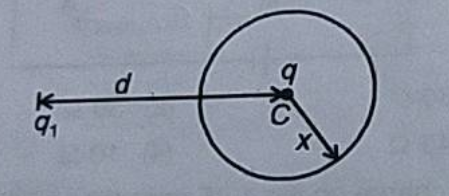
View Solution‘A point charge +Q is placed at point O as shown in the figure. Is the potential difference VA–VB positive.

View SolutionAn infinitely long line of linear charge density λ is shown in the figure. The potential difference VA−VB between the two points A and B is
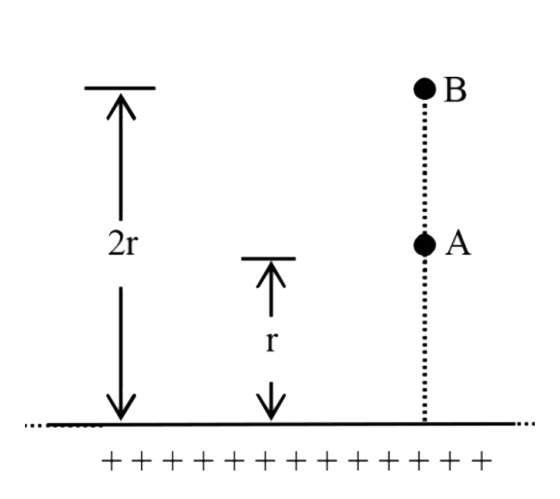
View SolutionFigure shown three points A,B and C in a region of unifrom electric field →E. The line AB is perpendicular and BC is parallel to the field lines. Then which of the following holds good. Where VA,VB and VC represenet the electric potential at points A,B and C respectively
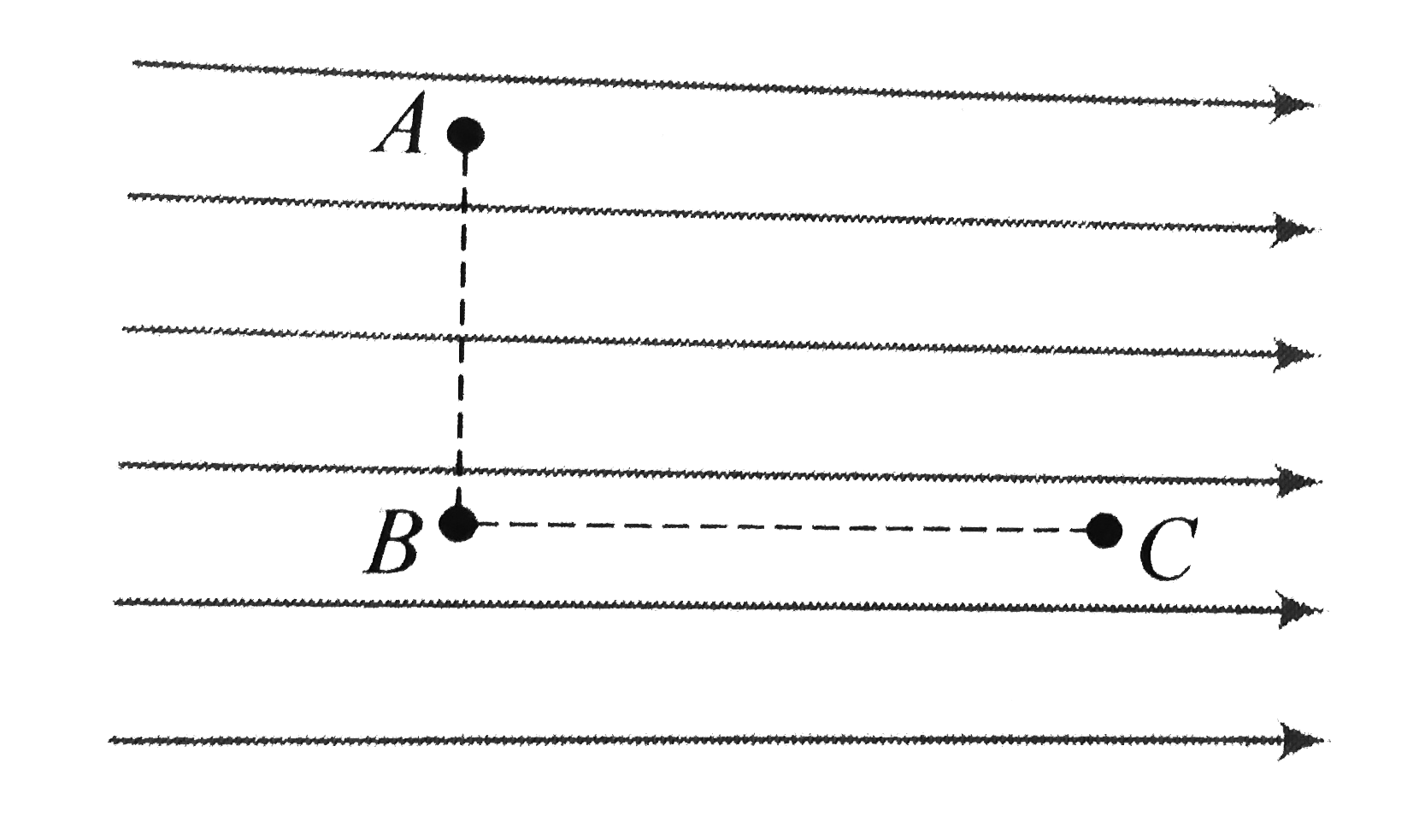
View SolutionFour capacitors and two batteries are connected as shown in the diagram. If Va and Vb denote the potentials of the points 'a' and 'b' then
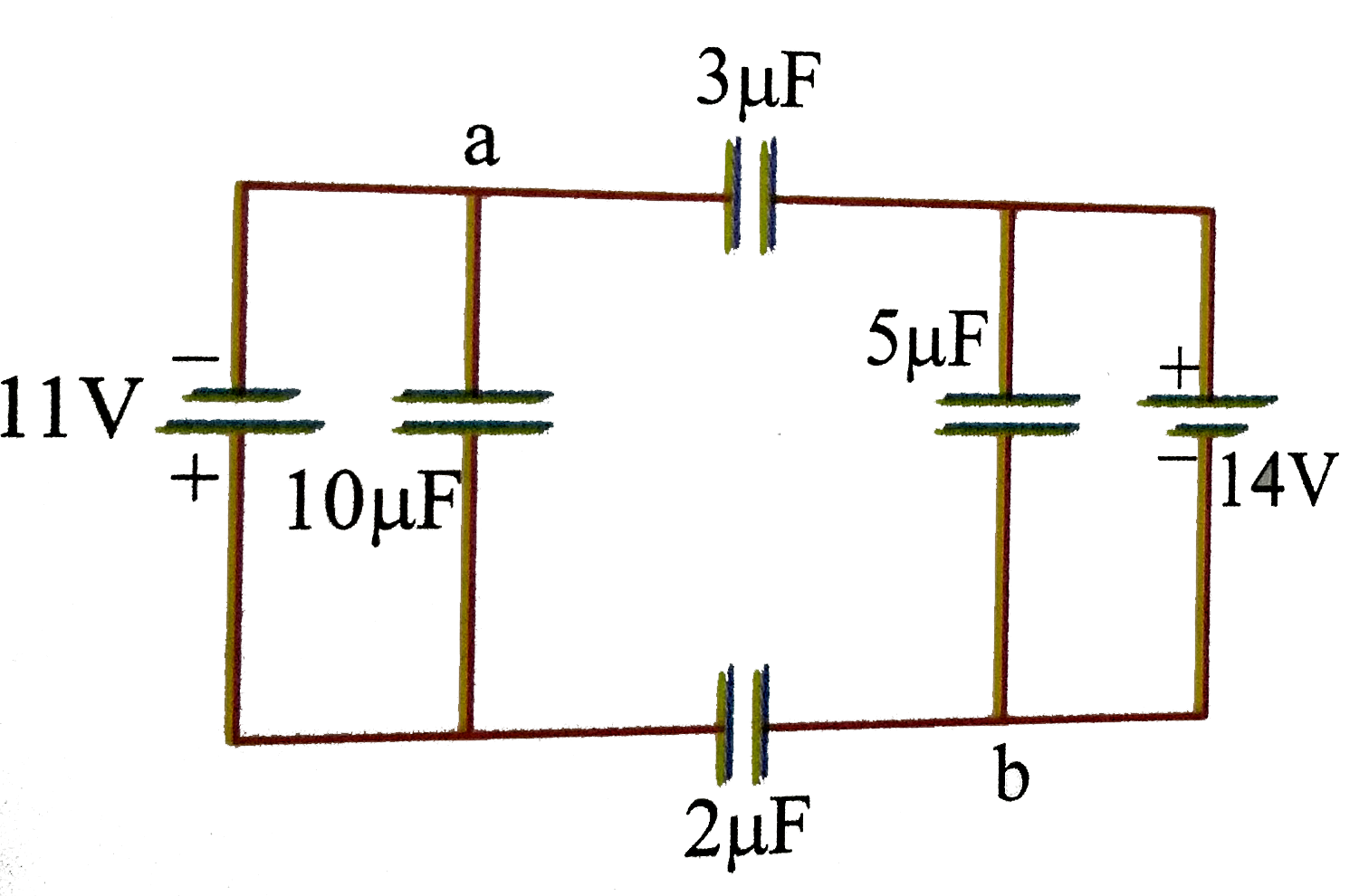 .
.
View Solution
